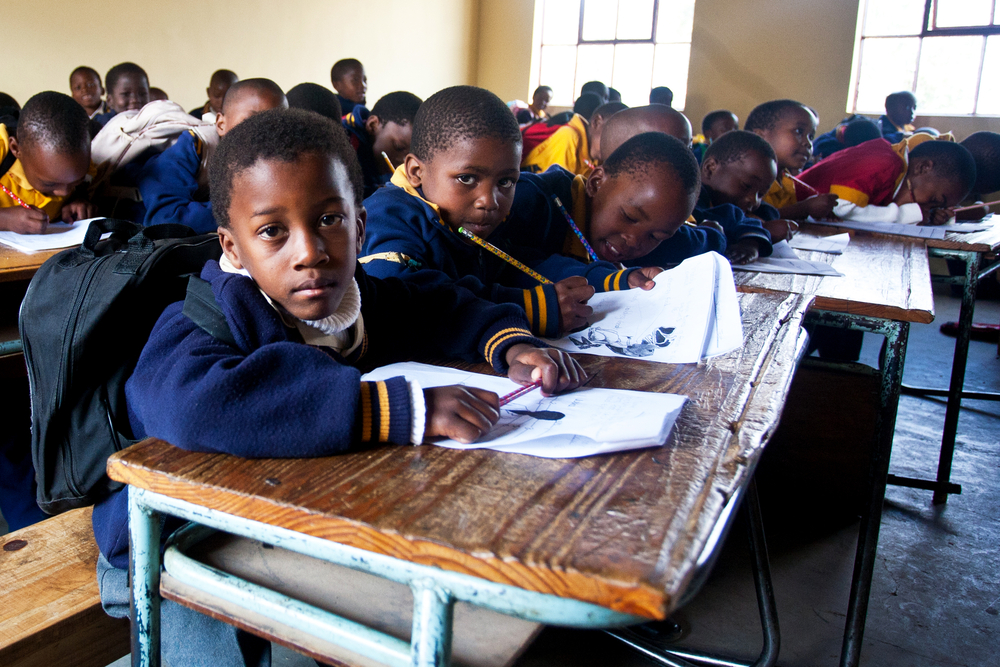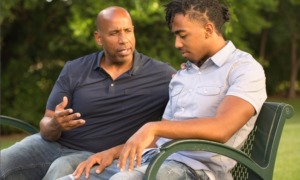
Travel Stock/Shutterstock
.
“I wish you were my real mom.”
While volunteering at a school in Shayandima, South Africa, this was a note I received multiple times from different kids.
As a private school, most of the students came from wealthier families. During my time there, I also helped feed and plan lessons for orphaned and impoverished children at a church down the road once a week. I was surprised to find that while some of the children I worked with had more materially, kids from both backgrounds lacked a common, vital need: love.
Although some of the children no longer had their own mothers in their lives, students from the school often had parents who were not always around. After inquiring with one of the teachers, I found out that most of the students’ parents worked six hours away in Johannesburg and only came home some weekends. Children from both backgrounds craved undivided attention and love.
You never know what a child is going through

Tessa Bost
Assumptions are easy to make; many people subconsciously create assumptions of others upon first impressions. Before my experiences in South Africa, I mistakenly assumed that those who materially have more have less of a need than those who do not have as much financially. While financially well-off children may need less physically, emotional needs are not determined by economic wealth. In fact, many children who come from families where both parents work may have parents who struggle with the work-family life balance and feel they do not spend an adequate amount of time with their children.
When you mentor a child, you have the opportunity to be a source of love and guidance and an example of grace, integrity and compassion they might not receive anywhere else. Children and teenagers who cause problems in the classroom or in other social circumstances tend to frustrate teachers, parents and others who work with them. Attempts to calm or control youth and young adults who are stirring up trouble can be detrimental when not using helpful methods. The Public Broadcasting Service shares how children or young adults acting out are often misunderstood in “Five Facts Every Family Should Know.”
Problematic behavior may be the result of a child being bullied at school or having issues with family at home. When I worked at the school in South Africa, one of the boys who was always getting into trouble lived with extended family while his parents worked in the city. He would come to school without socks on and even came with nothing but cake in his lunchbox. He was not acting out without a reason; most likely he was acting out in attempts to draw the care and attention he was not fully receiving at home. Perhaps more than most, children and young adults who instigate issues need love and grace from their teachers and mentors.
That is not to say happy, easy-going children do not have struggles they are internalizing. For the past three years I have been mentoring high school girls in the Atlanta area. These young women are as positive, friendly and well-behaved as they come, yet I have been blown away by the obstacles and trials they face.
Just because a child or young adult may appear to be doing well outwardly does not mean they aren’t struggling with depression, anxiety, self-doubt, suicidal thoughts or other personal conflicts. As a mentor, always be ready to give love, grace and genuine care to those who are trusting you and looking to you for guidance. You never know exactly how much your actions and reactions will impact a mentee’s life.
Be the person you want them to aspire to be
Every interaction you have with those you mentor gives them insight into your character, values and lifestyle. As a person who is guiding a child or young adult, you must be aware of your actions because you are the person the mentee is looking up to and learning from.
When you are vulnerable with the student you mentor, not only are you showing her or him the positive example of vulnerability, you are creating a way to connect with them in greater depth. To impactfully speak into what a student is going through requires honesty and being real about your own experiences.
Through being vulnerable about my high school struggles with my parents going through a divorce, I have been able to encourage, advise and connect with the high school girls I mentor as they went through similar situations. Vulnerability allowed me to speak into what I wish I had known and about what I have learned coming out of it on the other side. Use discretion but know that there is great power in vulnerability.
In all your interactions, be completely present and genuinely interested. Even young kids can tell when you really care about them or when you are simply going through the motions. If you are distracted by your own thoughts you will not be able to attentively listen and ask meaningful questions. Children, as well as adults, pick up on this and will not feel comfortable sharing what they are going through with someone they sense does not care enough to listen. By putting your phone away and being fully present in your interactions, you are showing your mentee that he or she is important, and you are being an example of how to prioritize others.
As a mentor in the life of a child or young adult, you must be aware of how your actions are being perceived. Social media plays a large role in today’s world. If those you mentor find or follow you online, they will put together a perspective of you based off what you post or share and what is posted or shared about you. Because many of the children and youth that I have been in a leadership role for follow me over social media, I am always aware of the image I present online and question if I am setting an example I want them to follow.
One tip I recommend would be to change your Facebook settings so any picture or post you are tagged in must be approved by you before it shows up on your timeline. There are also ways to filter who sees what you post or are tagged in. Be aware that while there are ways to manage who sees content on social media, once something is posted online there are often other ways to find it. Live the kind of example you want youth to aspire to and show an example of that over your online presence.
What kids and teenagers need most is love. Showing children that you truly care about who they are and the struggles they go through transcends culture, background and even language. While mentoring a child from a similar background may seem easier, do not be afraid to take on mentor work with kids different from you. If you mentor a child from a different background, you may be surprised how impactful you can be and how much you learn from them when you enter the mentorship with genuine love, vulnerability and care.
Tessa Bost is a recent graduate from Kennesaw State University. She has mentor experience with youth ranging from kindergarten to high school in locations such as Shayandima, South Africa and Palmer, Alaska, and she currently mentors high school girls at His Hands Church in Woodstock, Ga.































